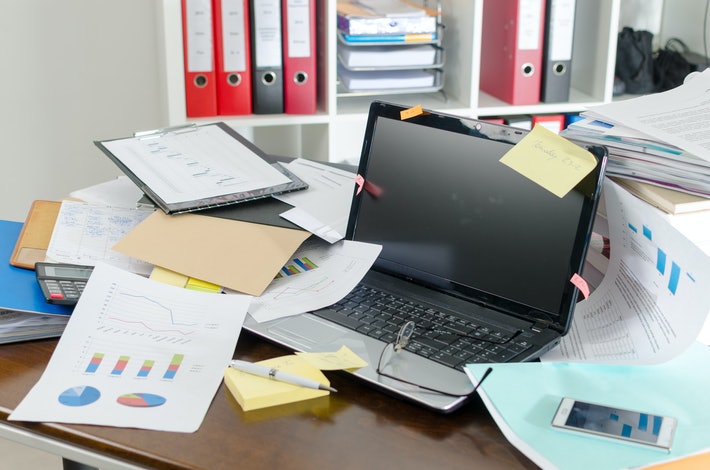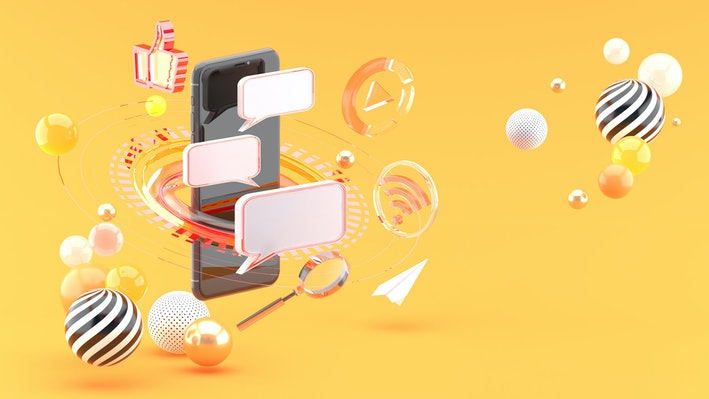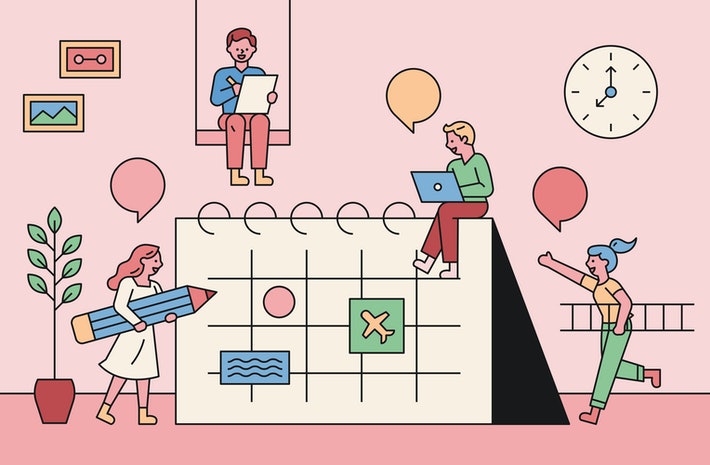提高工作效率的5个小贴士
5 MINDFUL TIPS TO BOOST PRODUCTIVITY IN YOUR WORKSPACE
By STEPHEN J. BRONNER
Distractions are inevitable, but thankfully there's some simple things you can do to maximize focus.
Staying on task can be a struggle whether you’re in a busy office, a co-working space, or your home. Thankfully, there are simple things you can do to mentally and physically maximize your productivity.
To find out some of these strategies, Inverse reached out to Micah McGuire, founder of The Mind Redesign, a company that uses brain science to advise clients, for the five most important things you should know about shaping your work environment for maximum productivity.

1.CLEAR OFF YOUR DESK
“Ever had a computer slow to a crawl because too many programs were running in the background?” McGuire asked. “Our attention works in the same way. We may be focused on the task in front of us, but our brains are constantly picking up unconscious cues from the surrounding environment.”
Many of our desks are strewn with papers and sticky notes filled with reminders, numbers, or to-do lists. This can serve as a huge distraction, McGuire said, due to the hypothesis put forward by Russian psychologist Bluma Zeigarnik, who found we tend to remember unfinished tasks better than completed ones.
“To keep your full concentration on a task, clear off your desk before starting any session of focused work,” McGuire said. “It’ll rid your space of any open loops your brain might latch onto while you’re trying to focus. Repeat the same routine enough and the simple habit of clearing your desk will prime your mind for a focused session.”

2.GET COMFORTABLE
“From a biology standpoint, we’re wired to avoid uncomfortable situations,” McGuire said. “As Seth Godin states in Linchpin, ‘The lizard brain only wants to eat and be safe.’ To silence the lizard brain, make yourself as comfortable as possible in your workspace temperature-wise, light-wise, and position-wise.”
Of course, controlling the temperature in your home tends to be easy, but anyone who has worked in an office knows those spaces always have quirks — it’s either frigid or scorching. Dress appropriately and pack extra layers to maximize comfort, McGuire said. She also recommends reducing eye strain caused by overhead lights and computer screens by wearing blue-light blocking glasses.
Finally, ensure comfort by keeping good posture and standing up every 30 minutes to an hour. McGuire said that buying a lumbar pillow or a gaming chair can also help.
3.MIND THE NOISE (OR DON’T)
Do you prefer absolute silence when you work, or do you feel music boosts your productivity? For people who like music while they work, the type of music or sounds make a big difference depending on what you’re doing, McGuire said.
“Recent research indicates music either helps or hurts productivity depending on the complexity of the music and of the task,” she said. “Complex music can boost your productivity if you’re working on something repetitive. But for working on complex tasks, you’re better off with simple music or ambient noise. In the end, it’s a matter of personal preference. If you’re in a noisy workplace, noise-cancelling headphones can certainly help.”
There are a few options for productivity-boosting music sounds to experiment with, including Brain.fm, binaural beat playlists on Spotify, as well as ambient noise generators such as Coffitivity and MyNoise.

4.TURN OFF NOTIFICATIONS
We’re constantly bombarded by pings and blinks, whether from texts, emails, Slack, or social media. It’s unsurprising this hurts productivity.
“The primary requirement for reaching a flow state is intense focus,” McGuire said. “If you’re constantly bombarded by new notifications, you’ll never hit that state. So turn off all of your notifications. Put your phone in ‘Do Not Disturb’ mode, and place it somewhere you can’t see it — preferably in a desk drawer, a bag, or a separate room entirely if you’re working from home. Shut down your email, mute notifications on Slack, and end as many computer apps as possible before you start your work.”

5.BLOCK OFF YOUR SCHEDULE
Losing your focus can cost precious time, as researchers have found it can take up to a half-hour to refocus after an interruption. To mitigate distractions, both from yourself, your co-workers, family members, or roommates, McGuire recommends time-blocking.
“As Cal Newport discusses in his book Deep Work, time-blocking is an essential building block for achieving intense focus,” McGuire said. “Blocking off time provides us with personal mental boundaries. If we’ve dedicated a certain amount of time to one task, we’re not constantly watching the clock and worrying about everything else we need to work on. When it comes to combating interruptions, a pinch of preparation is worth a pound of cure.”
She added that you should tell people in advance what time you’ve blocked off for a project and offer times they can reach you.